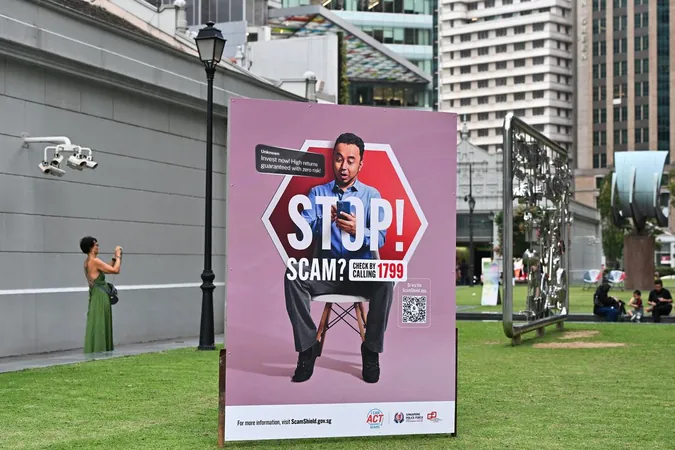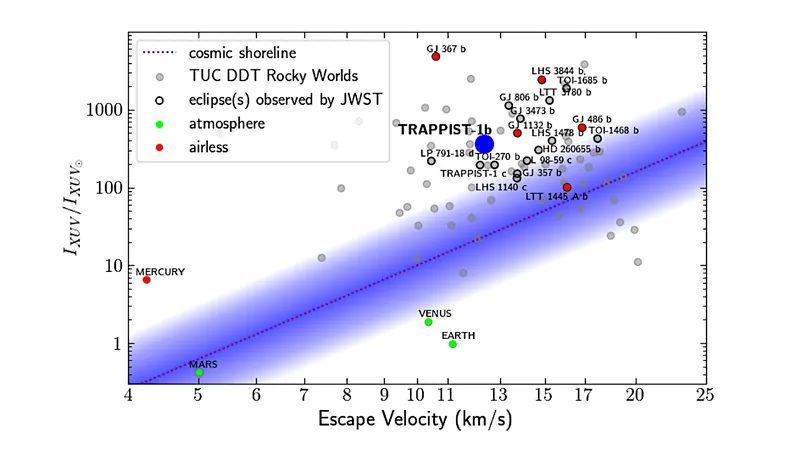
Singapore Takes Bold Stand Against Scams: Meta Faces Fines Up to $1 Million
2025-09-03
Author: Yu
Singapore Enforces First Online Harms Order Against Meta
In a groundbreaking move to combat the rampant scam epidemic, Singapore's authorities are issuing a directive to Meta, the parent company of Facebook, compelling it to take action against fraudulent activities on its platform. This unprecedented order comes with the threat of hefty fines reaching up to $1 million for non-compliance.
The directive specifically targets scam advertisements and fake accounts impersonating key government officials, including notorious government impersonation scams (Gois), which have surged alarmingly in recent months.
A Stark Warning to Scammers
Announced by Minister of State for Home Affairs, Goh Pei Ming, during the Global Anti-Scam Summit Asia 2025, this drastic measure reflects the government’s commitment to fighting crime on digital platforms, particularly Facebook, which has become a playground for scammers.
Stats reveal the severity of the issue: Gois have nearly tripled this year, with 1,762 cases reported in the first half of 2025, a dramatic leap from 589 cases over the same period last year.
The Eye-Watering Cost of Scams
Victims of scams lost a staggering $126.5 million in just six months of 2025, marking a jaw-dropping 90% increase from the previous year. Reports from earlier this year revealed fake accounts impersonating prominent officials, including Prime Minister Lawrence Wong.
In response to rising concerns, PM Wong warned the public about fake advertisements using advanced deepfake technology to promote dubious investment schemes.
A Collaborative Fight Against Digital Fraud
Goh emphasized that the government is taking a multi-faceted approach to tackle scams, involving preemptive blocking, active reporting, and public education initiatives.
At the summit, Meta's Maxime Prades highlighted their efforts to protect public figures globally with advanced technology, but acknowledged that challenges remain, especially concerning scams related to political figures.
Strained Ties Between Meta and Singapore Authorities
The relationship between Meta and Singapore has been fraught due to repeated criticisms over the platform's inadequate measures to combat scams. Past attempts by the government to negotiate enhanced safeguards have often met resistance, prompting calls for more decisive actions.
TikTok Under Scrutiny
In a related development, TikTok has also been designated as an online service provider under the new regulations, requiring it to implement stringent measures against scams by early 2026. The rise in scams on TikTok has surged by a staggering 240% in just one year.
A Step Towards Safer Online Spaces
Despite the current challenges, there is a glimmer of hope: scam-related losses decreased overall in Singapore during the first half of 2025 compared to the previous year, showing that determined efforts can yield significant results in the fight against online fraud.
With these latest measures, Singapore is sending a clear message: the war against scams is a top national priority, and all digital platforms must collaborate to safeguard their users.



 Brasil (PT)
Brasil (PT)
 Canada (EN)
Canada (EN)
 Chile (ES)
Chile (ES)
 Česko (CS)
Česko (CS)
 대한민국 (KO)
대한민국 (KO)
 España (ES)
España (ES)
 France (FR)
France (FR)
 Hong Kong (EN)
Hong Kong (EN)
 Italia (IT)
Italia (IT)
 日本 (JA)
日本 (JA)
 Magyarország (HU)
Magyarország (HU)
 Norge (NO)
Norge (NO)
 Polska (PL)
Polska (PL)
 Schweiz (DE)
Schweiz (DE)
 Singapore (EN)
Singapore (EN)
 Sverige (SV)
Sverige (SV)
 Suomi (FI)
Suomi (FI)
 Türkiye (TR)
Türkiye (TR)
 الإمارات العربية المتحدة (AR)
الإمارات العربية المتحدة (AR)